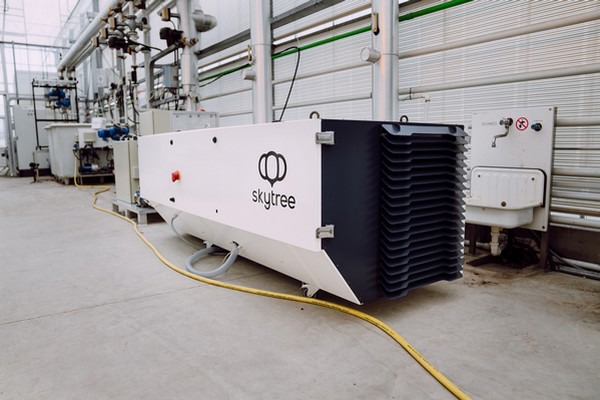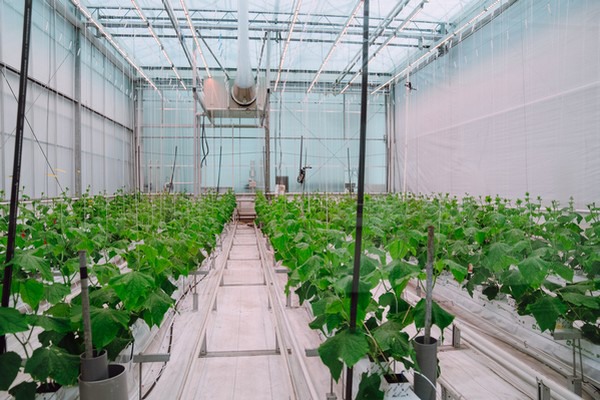Skytree is partnering with Wageningen University & Research on the Direct Air Capture research project. The project explores the quality and feasibility of DAC systems and technology. In the innovation and demonstration center, WUR will test the Skytree Cumulus for six months.

Through Direct Air Capture, Skytree intends to offer a solution to the CO2 challenge in the horticulture sector. The project aims to evaluate CO2 quality and to provide metrics for capturing CO2 from ambient air. The collaboration with WUR comes at an opportune time for Skytree, as the first units are currently being delivered to customers. This project offers an opportunity to demonstrate the alleged value and benefits of Direct Air Capture technology.
By adding CO2 in a controlled environment, growers can increase crop yields. Currently, many growers use CO2 released from the combustion of natural gas in combined heat and power plants (CHP). These plants produce CO2 along with heat and electricity.

CO2
Aside from burning natural gas for their own usage, there are more ways for growers to obtain CO2. Some companies use liquid CO2 from tanks, for example, from oil refineries. These CO2 tanks are delivered by trucks. The use of CO2 from industry, with all the steps in the process – from capture, cleaning, and liquefaction to storage in cylinders and then transportation to growers – results in an additional 50% harmful emissions. Every ton of CO2 captured can lead to 1.5 tons of emissions, which is ultimately released into the atmosphere. WUR emphasizes that these are not their results. Nor are the results verified or endorsed by the university. The future availability of CO2 is under pressure due to the shift towards sustainable energy sources instead of CHP installations and plans to store CO2 from the industry under the North Sea.
The research is funded by the 'Kas als Energiebron program.'
 For more information:
For more information:
Skytree
www.skytree.eu
info@skytree.eu
